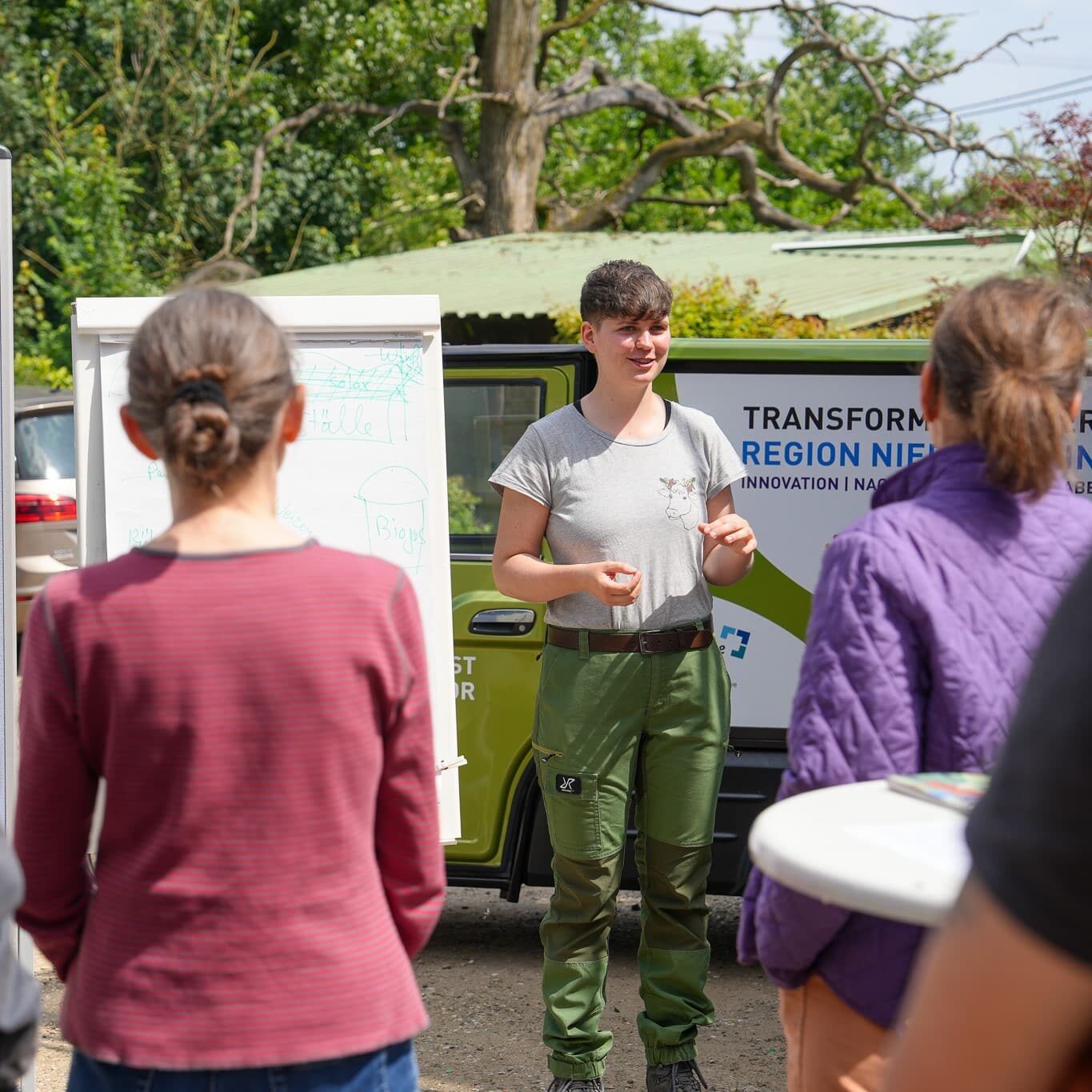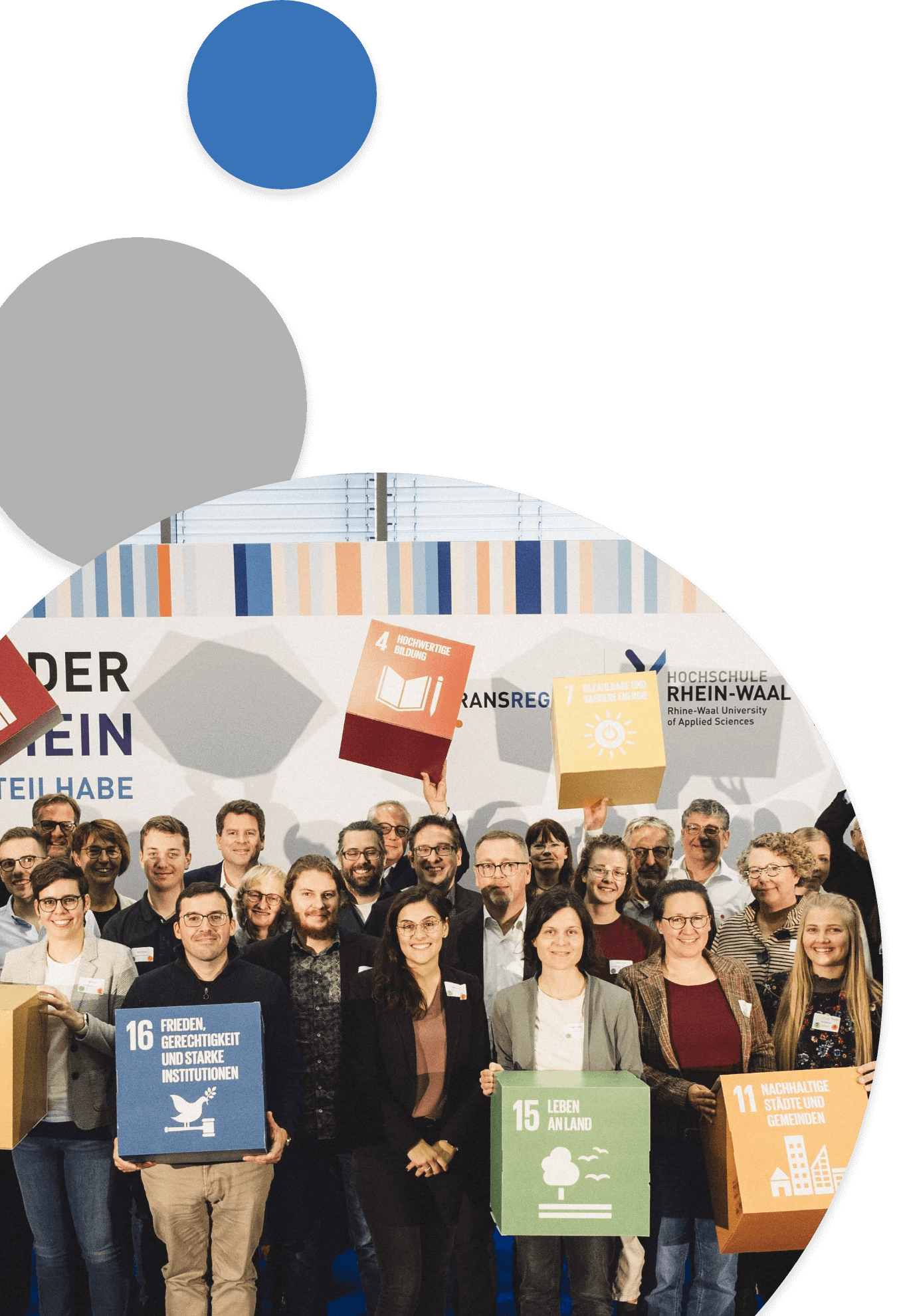
Agroforestry Week – experience sustainable agriculture of the future
From June 3 to 8, the Agroforestry Summer Week took place for the first time at Rhine-Waal University of Applied Sciences (HSRW). In lectures, workshops and excursions, various groups were introduced to the concept of agroforestry – the combination of woody plants with arable crops and/or animal husbandry on a single site. And may have helped to reduce the shyness and reservations about this age-old practice. The agroforestry system may be more complex to manage, but it offers many positive effects, such as reduced use of pesticides, protection of biodiversity and increased erosion control.
Children’s university arouses curiosity for ecological topics
The Agroforestry Summer Week kicked off on June 3 with a lecture at the Rhine-Waal University of Applied Sciences (HSRW) Children’s University. Anna-Lea Ortmann, a doctoral student in the TransRegINT project’s Agroforestry Living Laboratory, captured the attention of the audience aged 8 to 12 by explaining the basics of sustainable agriculture in a vivid way. She paid particular attention to the innovative concept of agroforestry. This laid the foundation for sensitizing children to sustainable agriculture at an early age and awakening their curiosity for ecological topics.

Tree rally offers practical exercise
Rhine-Waal University of Applied Sciences students on the Agribusiness and Sustainable Agriculture bachelor’s degree courses were offered a tree rally, which was held over two days in the Kleve forest garden. The forest garden in Kleve has a diverse tree population, including a large number of botanically valuable trees. The city of Kleve has also created a fruit tree arboretum in one section. An ideal place to get to know trees in a playful way. And so the students explored the forest garden and its tree population in a creative and educational way and gained additional background knowledge about the trees.

Direct experience of agroforestry operations
In addition to an excursion to the agroforestry farms Berkhöfel in Bedburg-Hau and Schanzenhof in Alpen, which was reserved exclusively for students, there was also the opportunity for those outside the university to visit an agroforestry farm. Pia Haartz from Hof Birgel in Kalkar gave a public tour of the walnut agroforestry to show how agriculture and nature conservation go hand in hand. Over 60 trees of different walnut varieties were planted at the beginning of the year. In the meantime, the Haartz family has planted a new area with hazelnut bushes and hazelnut trees, which participants were able to walk through. The roots of the plants were inoculated with truffle spores. This results in special care requirements, but also the hope of being able to harvest Burgundy truffles as well as hazelnuts in five to ten years’ time.

The students had the opportunity to visit two agroforestry farms with different focuses. The organic farm Berkhöfel, in cooperation with the association Landschaftspflege im Kreis Kleve (LIKK e.V.), cultivates orchards that are grazed by its own sheep. The Schanzenhof has integrated agroforestry into its activities alongside dairy farming.
First agroforestry round table on the Lower Rhine
The first agroforestry get-together for farmers took place in the seminar room of the tropical greenhouse on June 7. It was a hit: around 25 people from the agricultural sector came together for a lively discussion. Questions were asked and answered, and successes, ideas and challenges were shared. The regulars’ table is to be continued on a bi-monthly basis and combined with farm visits and tours of future agroforestry areas in the region.
Formation and importance of soils in orchards
Together with LIKK e.V., Prof. Dr. Florian Wichern from HSRW and Dr. Stefanie Heinze from Ruhr-Universität Bochum got their hands dirty and provided a better understanding of soils in the workshop “Soil in orchards”. The participants met on an orchard meadow in Neulouisendorf. They deepened their understanding of the importance of soil for plants.




Kommentare